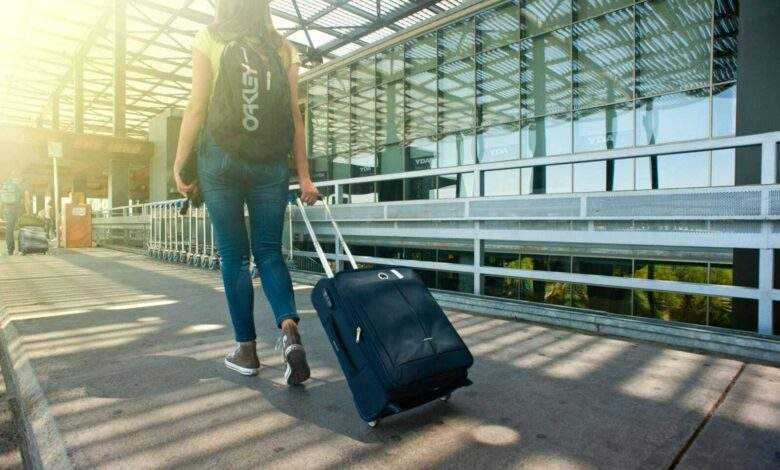Pack Green: Eco-Friendly Travel Essentials and Sustainable Travel Hacks

Table of Contents
In recent years, there has been a notable shift towards more eco-conscious travel practices. As travelers become increasingly aware of the environmental impact of their journeys, they are seeking ways to minimize their carbon footprint and preserve the destinations they visit.
Traveling sustainably isn’t just about where you go—it’s about how you get there and what you bring along. Pack Green embodies a mindful approach to travel, emphasizing practices that reduce environmental harm while enhancing your travel experience. By embracing Pack Green:
- Reduce Your Carbon Footprint: Minimize waste generation and opt for eco-friendly transportation options.
- Support Local Communities: Contribute positively to the places you visit by supporting local businesses and sustainable tourism initiatives.
- Enhance Your Connection to Nature: Foster a deeper appreciation for the natural beauty and cultural heritage of your destinations.
- Travel Lighter: Embrace minimalist packing to streamline your journey and reduce excess baggage.
Choosing eco-friendly travel essentials offers numerous advantages:
- Reduce Single-Use Plastics: Opt for reusable alternatives to reduce plastic waste.
- Promote Responsible Consumption: Make conscious choices that align with sustainable living principles.
- Save Money: Invest in durable, reusable products that last longer than disposable counterparts.
- Enhance Travel Comfort: Enjoy a cleaner, more sustainable travel experience for yourself and others.
Discover innovative Pack Green hacks that elevate your travel sustainability:
- Reusable Toiletry Containers: Use refillable containers for toiletries to minimize plastic waste.
- Pack Light: Travel with a minimalist wardrobe and essentials to lighten your environmental impact.
- Reusable Water Bottles and Filters: Stay hydrated sustainably by avoiding single-use plastic bottles.
- Explore Local Cuisine: Support local farmers and reduce food miles by dining on regional specialties.
- Offset Your Carbon Footprint: Consider carbon offset programs to mitigate the environmental impact of your travel.
Essential Eco-Friendly Travel Gear
A. Pack Light for Maximum Impact
Packing light is not just about convenience; it’s also a sustainable practice that reduces carbon emissions from transportation and minimizes your overall environmental footprint. Here’s how you can pack smart:
- Versatile Capsule Wardrobe: Embrace the concept of a capsule wardrobe by selecting clothing items that can be mixed and matched for various occasions and climates. This approach ensures you have everything you need without overpacking or carrying unnecessary items.
- Space-Saving Techniques: Optimize your luggage space with efficient packing methods like rolling clothes instead of folding them. This not only saves space but also reduces wrinkles and allows for better organization within your suitcase.
- Packing Cubes: Invest in packing cubes made from sustainable materials or recycled fabrics. These cubes not only keep your belongings organized but also help in minimizing the use of plastic bags or excess packaging.
Resources:
- REI – How to Pack Light – Offers tips and techniques for packing efficiently and reducing luggage weight.
- Patagonia – Packing Tips – Provides guidance on packing smartly with a focus on sustainability and reducing environmental impact.
B. The Power of Reusable Travel Essentials
Using reusable travel essentials significantly reduces single-use plastic waste and promotes sustainable consumption habits. Here are essential reusable items to consider:
- Reusable Water Bottles: Choose a durable and BPA-free water bottle that can be refilled throughout your travels. Look for features like insulation to keep beverages hot or cold for extended periods, and consider models with built-in filtration systems for clean water on the go.
- Reusable Containers: Pack snacks, toiletries, and other necessities in reusable containers such as stainless steel lunch boxes or silicone pouches. These alternatives eliminate the need for disposable plastic bags and containers, reducing waste both during your trip and at your destination.
- Travel Utensil Sets: Carry a compact travel utensil set with reusable bamboo or stainless steel utensils. These sets come in handy when dining out or grabbing meals on the go, helping you avoid disposable plastic cutlery commonly offered at fast-food restaurants or during travel.
- Reusable Shopping Bags: Include foldable and lightweight reusable shopping bags in your travel gear. These bags are ideal for carrying groceries, souvenirs, or other purchases without relying on single-use plastic bags, contributing to local sustainability efforts and reducing plastic pollution.
- Laundry Bags: Consider using a Guppy Friend laundry bag to wash clothes while traveling. These innovative bags capture microfibers released from synthetic fabrics during washing, preventing them from entering water systems and ultimately the ocean.
Resources:
- EarthHero – Offers a variety of sustainable travel essentials including reusable water bottles, containers, and eco-friendly laundry solutions.
- Life Without Plastic – Provides a range of plastic-free and reusable products for sustainable living, including travel essentials like utensil sets and shopping bags.
C. Eco-Friendly Personal Care on the Go
Choosing eco-friendly toiletries not only reduces plastic waste but also supports sustainable practices throughout your journey:
- Solid Toiletries: Opt for solid toiletries such as shampoo bars, soap bars, and conditioner bars. These compact and TSA-friendly alternatives eliminate the need for plastic bottles, reducing both packaging waste and the environmental impact of your personal care routine.
- Reusable Travel Containers: Refill reusable travel containers with your favorite personal care products from home. This practice not only reduces the consumption of travel-sized toiletries but also minimizes plastic waste associated with single-use packaging.
- Natural and Biodegradable Products: Select personal care products made from natural and biodegradable ingredients whenever possible. These products are gentler on the environment and often come in eco-friendly packaging, making them a sustainable choice for conscientious travelers.
Resources:
- Lush – Offers a range of solid toiletries and eco-friendly personal care products suitable for travel.
- Package Free Shop – Provides plastic-free and sustainable personal care products, including travel-friendly options like shampoo bars and reusable containers.
D. Sustainable Travel Gear Beyond the Essentials
Explore additional eco-friendly travel gear options to enhance your sustainable travel experience:
- Recycled Packing Cubes: Look for packing cubes made from recycled materials or sustainable fabrics. These eco-friendly alternatives offer the same organizational benefits as traditional packing cubes while reducing your environmental impact by repurposing materials that would otherwise go to waste.
- Solar Chargers: Invest in a portable solar charger to power your electronic devices using renewable energy sources. Solar chargers are particularly beneficial for outdoor adventures or travel to remote locations where access to traditional electricity may be limited, allowing you to charge your devices sustainably while on the go.
- Reusable Coffee Mugs or Straws: Carry a reusable coffee mug or straw to avoid disposable options during your travels. Reusable coffee mugs are not only eco-friendly but also keep beverages at the desired temperature for longer periods, offering convenience and sustainability in one practical item.
Resources:
- Goal Zero – Offers a range of portable solar products and chargers for sustainable outdoor adventures.
- ChicoBag – Provides reusable bags and other eco-friendly travel accessories designed to reduce single-use plastic consumption.
Sustainable Travel Hacks for Eco-Conscious Travelers
A. Transportation Choices with Minimal Impact
Traveling sustainably begins with mindful transportation choices that reduce your environmental footprint:
- Electric Vehicles (EVs): Consider renting or using electric vehicles where available to significantly reduce greenhouse gas emissions compared to traditional gasoline vehicles. Check options on Enterprise CarShare or Zipcar.
- Carpooling and Ride-Sharing: Share rides with other travelers or locals through ride-sharing apps like Blablacar to reduce the number of vehicles on the road and lower individual carbon footprints.
- Train and Ferry Travel: Opt for trains or ferries for longer distances where feasible, as they generally have lower emissions per passenger compared to airplanes. Explore options on Trainline or Direct Ferries.
B. Responsible Accommodation Choices
Make conscious decisions when choosing where to stay to support sustainable tourism practices:
- Off-Grid Accommodations: Explore eco-lodges or accommodations powered by renewable energy sources like solar or wind, minimizing reliance on non-renewable energy. Find options on EcoHotels or Green Key.
- Certified Eco-Friendly Stays: Look for accommodations certified by programs like EarthCheck or Green Globe, ensuring they meet stringent environmental criteria.
- Volunteer Stays: Consider volunteer programs that offer accommodation in exchange for contributing to local conservation or community projects, promoting sustainable tourism. Discover opportunities on Workaway or WWOOF.
C. Embrace the Power of “Slow Travel”
Immerse yourself in local cultures and minimize environmental impact through slow travel practices:
- Homestays and Farmstays: Stay with local families or on sustainable farms to experience daily life, supporting local economies and cultural exchange. Explore options on Airbnb or Homestay.
- Seasonal Travel: Opt for traveling during off-peak seasons to reduce tourist pressure on popular destinations and support year-round sustainability efforts.
- Slow Food Movement: Enjoy meals at restaurants that prioritize locally-sourced ingredients and traditional cooking methods, supporting sustainable food practices. Find recommendations on Slow Food International.
D. Eco-Conscious Activities and Experiences
Engage in activities that promote environmental awareness and support local communities:
- Educational Tours: Participate in tours focusing on environmental education and conservation efforts, such as guided nature walks or visits to wildlife rehabilitation centers. Check out tours on Viator or Ecotour.
- Green Museums and Attractions: Visit museums and attractions with green certifications or sustainability initiatives, learning about local ecosystems and cultural heritage.
- Volunteering Opportunities: Volunteer for beach clean-ups, reforestation projects, or community initiatives during your travels to actively contribute to environmental conservation. Find projects on GoEco or Projects Abroad.
E. Minimizing Waste on the Go
Reduce waste generation and promote responsible consumption habits during your travels:
- Compostable and Biodegradable Products: Use compostable or biodegradable alternatives for disposable items like cutlery, plates, and packaging to reduce landfill waste.
- Water Conservation: Conserve water by taking shorter showers, reusing towels, and reporting any leaks or wastage to accommodation staff.
- Packaging Reduction: Choose products with minimal packaging or opt for products packaged in recyclable materials to reduce waste accumulation during travel.
Additional Resources
Enhance your sustainable travel journey with these resources:
- Global Sustainable Tourism Council (GSTC): Provides guidelines and resources for travelers and businesses committed to sustainable tourism practices. Visit GSTC.
- EcoTourism.org: Offers information on eco-friendly destinations, sustainable travel tips, and certified eco-tour operators worldwide. Explore more on EcoTourism.
- Sustainable Travel International: Advocates for sustainable travel practices and provides tools for travelers to make responsible choices. Learn more at Sustainable Travel International.
Embrace Sustainable Travel: Beyond the Destination
A. Responsible Souveniring
When traveling sustainably, your choices extend beyond transportation and accommodation to include how you engage with local cultures and economies through souvenirs:
- Support Local Artisans: Seek out locally-made crafts and products that showcase traditional craftsmanship and support local economies. Websites like Etsy often feature handmade items from artisans around the world.
- Choose Sustainable Materials: Opt for souvenirs made from sustainable materials such as bamboo, recycled materials, or certified wood. These choices help reduce environmental impact and support sustainable practices.
- Celebrate Local Culture: Choose souvenirs that celebrate the cultural heritage of the destination, such as indigenous art or traditional textiles. Websites like NOVICA connect you directly with artisans from around the world.
- Avoid Unsustainable Materials: Refrain from purchasing souvenirs made from endangered species, coral, or unsustainable materials like tropical hardwoods. This helps protect wildlife and preserve natural habitats.
- Experiences Over Material Goods: Consider investing in experiences like local tours, cooking classes, or cultural performances instead of material souvenirs. These memories often have a lasting impact and create minimal environmental footprint.
B. Travel with Respect
Responsible travel goes hand in hand with respecting local cultures, traditions, and environments:
- Cultural Sensitivity: Dress modestly and appropriately, especially when visiting religious sites or conservative communities. Research local customs and norms beforehand to show respect.
- Language and Communication: Learn basic phrases in the local language to facilitate communication and show appreciation for local culture. Websites like Duolingo offer free language lessons for travelers.
- Environmental Stewardship: Minimize your environmental impact by reducing waste, conserving water and energy, and supporting accommodations and tour operators with strong sustainability practices.
- Respect Local Wildlife: Avoid activities that exploit or harm wildlife, such as elephant rides or interactions with captive animals. Choose responsible wildlife tours with reputable operators committed to animal welfare.
- Community Support: Contribute positively to local communities by purchasing from local businesses, using local guides, and respecting local customs. Your support helps sustain livelihoods and preserve cultural heritage.
C. Sharing Your Sustainable Travel Journey
Inspire others to embark on eco-conscious adventures and amplify the impact of sustainable travel:
- Social Media Advocacy: Share your sustainable travel tips, experiences, and recommendations on social media platforms like Instagram and Facebook. Use hashtags like #SustainableTravel or #PackGreen to connect with like-minded travelers.
- Recommend Eco-Friendly Brands and Destinations: Highlight eco-friendly hotels, tour operators, and destinations that prioritize sustainability. Encourage your network to choose responsible options when planning their travels.
- Advocate for Responsible Tourism: Use your platform to advocate for responsible tourism practices, environmental conservation, and cultural preservation. Educate others on the benefits of sustainable travel and inspire them to make informed choices.
Pack Green FAQs: Travel the World Sustainably and Guilt-Free!
Planning an adventure? Pack Green offers tips and tricks to explore the world responsibly and minimize your environmental impact. Here are some common questions you might have:
1. Packing light seems impossible! How can I do it?
Start by creating a versatile capsule wardrobe for your trip. Focus on interchangeable pieces and pack for layering. Utilize space-saving techniques like rolling clothes and packing cubes. Download our Pack Green Checklist for a handy packing guide!
2. What are some essential eco-friendly travel items?
Invest in reusable water bottles, containers, utensils, and shopping bags. Consider solid toiletries and refillable containers to ditch single-use plastics. Check out the blog for in-depth reviews and recommendations!
3. How can I choose eco-friendly transportation?
Public transportation, biking, and walking are great eco-friendly options. Consider carbon offset programs for flights and choose fuel-efficient cars if renting. Explore your destination and support local transportation initiatives!
4. What makes an accommodation “eco-friendly”?
Look for hotels or lodges prioritizing renewable energy, water conservation, and local sourcing. Support smaller, locally-owned businesses that contribute to the community. Read online reviews and look for sustainability certifications!
5. What’s “slow travel” and why should I try it?
Slow travel encourages staying in one location longer, immersing yourself in the culture. It minimizes transportation and allows you to connect with the community. Imagine savoring local cuisine and supporting artisans!
6. How can I minimize waste while traveling?
Avoid single-use plastics, pack light to avoid souvenir clutter, and opt for experiences over material possessions. Support locally-owned shops that use minimal packaging and understand local recycling practices.
7. What are some responsible souvenir options?
Choose locally-made crafts from sustainable materials or support indigenous art. Consider donations to local charities or experiences like cooking classes. Remember, respect local wildlife and avoid souvenirs made from endangered materials.
8. How can I travel respectfully?
Dress modestly and learn basic phrases in the local language. Be mindful of noise levels and avoid littering. Support local guides and businesses, and remember, you’re a guest in their community!
9. How can I share my sustainable travel journey?
Inspire others! Use social media to showcase your eco-conscious travel tips and experiences. Recommend sustainable brands and destinations. Advocate for responsible tourism and show the world how to #PackGreenTravel!
10. Where can I find more resources for eco-friendly travel?
We’ve got you covered! Check out the blog’s resources section for websites, directories, and organizations promoting sustainable travel and responsible tourism. Let’s explore the world together, leaving a positive impact!
Embracing Sustainable Travel
As we conclude our journey into sustainable travel with Pack Green principles, let’s reflect on the transformative impact of conscious choices:
Sustainable travel isn’t just about reducing our carbon footprint; it’s about respecting cultures, supporting local economies, and preserving our planet’s natural wonders. Start your eco-conscious travel journey today by taking small steps that make a big difference:
- Choose Eco-Friendly Gear: Invest in reusable travel essentials like water bottles, containers, and toiletries to minimize waste.
- Support Sustainable Accommodations: Opt for eco-lodges and hotels that prioritize renewable energy, water conservation, and community engagement.
- Share Your Journey: Use social media to inspire others with your sustainable travel experiences and encourage them to join the movement.
Resources for Further Exploration:
- Eco-Friendly Travel Gear: Explore options for sustainable travel essentials at websites like EarthHero and REI Co-op.
- Sustainable Travel Blogs: Gain insights and inspiration from blogs like Sustainable Travel International and Green Global Travel.
- Communities for Support: Join communities like EcoTourism Australia and Responsible Travel to connect with like-minded travelers and share sustainable travel tips.
Take the Pledge: Commit to traveling responsibly by pledging to minimize your environmental impact, respect local cultures, and support sustainable practices wherever you go.
B. The Future of Sustainable Travel
Looking ahead, the future of travel holds promising possibilities for sustainability:
- Growing Demand for Eco-Tourism: As travelers become more conscientious, there is a rising demand for eco-friendly accommodations, tours, and experiences that prioritize environmental and social responsibility.
- Positive Impact on Communities: By choosing sustainable travel options, we can contribute to local economies, support conservation efforts, and foster cultural appreciation.
- Optimism for Change: With increasing awareness and advocacy, we envision a future where every journey leaves a positive mark on the planet and enriches the lives of local communities.
C. Additional Resources
For those eager to delve deeper into sustainable travel, here are valuable resources to explore:
- Websites and Blogs: Discover eco-friendly travel tips and destinations at National Geographic Travel, Lonely Planet Sustainable Travel, and Sustainable Travel International.
- Directories of Sustainable Accommodations: Find eco-lodges and responsible accommodations through platforms like Green Key Global and Ecotourism Australia.
- Advocacy Organizations: Support initiatives promoting responsible tourism and environmental conservation, such as The International Ecotourism Society (TIES) and Global Sustainable Tourism Council (GSTC).








